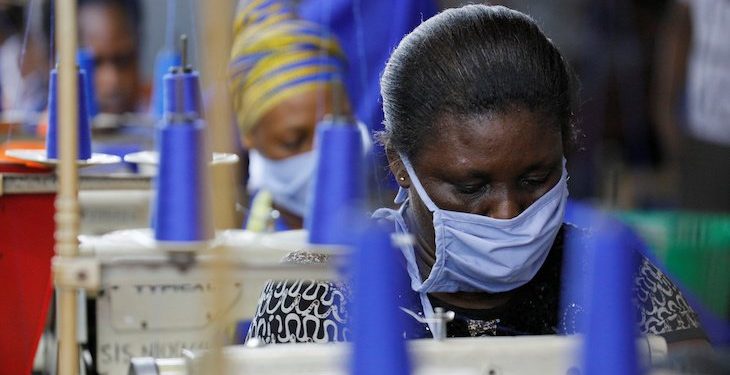Ghana has shown that by dropping the dogma around free market policy, making manufacturing a bipartisan cause and using the government as a problem-solving machine for business, African countries can create jobs and attract investment into industry.
The Africa Continental Free Trade (AfCFTA) agreement now serves as the cornerstone of efforts to transform Africa’s economy. Its ultimate overarching goal is not merely to boost intra-African trade, but to industrialise the continent.
Yet the AfCFTA will face major headwinds in these early years unless African economies demonstrate tangible progress in their industrialisation efforts.
Among others, Ghana’s industrial strategy provides an example of how governments can drive industrialisation in a way that aligns to increased trade, thereby supporting the AfCFTA and its aims.
In 2018, Ghana became West Africa’s largest recipient of foreign direct investment (FDI) in West Africa, attracting $3 billion and raising its FDI inward stock to $36 billion in 2018, up from just $10 billion in 2010.
Manufacturing is a major component – between 2015 and 2018, $3.8 billion out of a total $11.7 billion in FDI was in this sector and this trend continued in 2019 and 2020.
How and why has Ghana succeeded in this way? A plethora of research has attempted to answer this question.
However, most have been inconclusive and largely ignored the depth of the role of the state, typically framing it around merely providing a stable macroeconomic environment.
Yet, the government played a much more active and strategic role, intentionally promoting, facilitating and incentivising investment in specific sub-sectors of manufacturing through a pro-active and emerging industrial policy.
While this approach has not been without its challenges, there are five clear themes which have driven Ghana’s industrialisation efforts.
1. Clear Vision
First, Ghana has a clear industrialisation vision. The government – at the highest levels – wants to turn Ghana into a manufacturing hub for West Africa and the Ghana Industrial Policy of 2010 has served as a ‘north star’ for this.
It identified key challenges and bottlenecks, while also setting guidelines for the competitiveness and diversification of Ghana’s manufacturing sector.
The two parallel approaches embedded in the policy are an export-led industrialization strategy and domestic market-led industrialization strategy based on import competition.
2. Role of Leadership
The Ghana Investment Promotion Centre (GIPC), which sits under the Office of the President, has played an important role since the GIPC Act was passed in 2013.
Much of the credit for securing investment in Ghana’s manufacturing sector lies with the GIPC Act which enabled the government to provide a set of incentives and subsidies for companies looking to manufacture for export, as well as the policy allowing duty-free import of technology and machinery for manufacturing.
3. Political Will and Bipartisanship
Industrialisation has become a bipartisan issue in Ghana, with both of the major political parties recognising its electoral popularity and its importance for the country’s economic transformation, irrespective of their political ideology.
Under both of the major political parties over the last decade, transformative investments were made in infrastructure, an industrial policy was developed and there was a push to use revenue from the relatively new oil sector to finance an ambitious economic diversification programme.
4. Removal of Key Barriers
The government used its industrial strategy as a co-ordinating tool to eliminate specific obstacles, such as trade barriers, industrial land availability, and tailored infrastructure, and accentuate the country’s strengths – the rule of law, a highly educated workforce and availability of key resources.
Recently, the government has prioritised ensuring reliable and cheap power, financial stability and land for investors.
It has also developed special economic zones such as the Tema Export Processing Zone, which has been remarkably successful and has played a central part in the growth of Ghana’s industrial sector over the past decade, with the attraction of companies such as Barry Callebaut, Cargill and Cocoa Touton to the country a direct result of the efforts of the Ghana Free Zones Board.
5. Collaboration for Market Creation
Industrial policy is nothing without implementation and collaboration. The Government has deliberately focused on working with investors to create markets, supporting local industries and to creating a suitable environment for foreign investment and technology transfer.
A vivid illustration of this is the Ministry of Industry and Trade and other government stakeholders’ work over the last year to develop a policy to kickstart a local automotive assembly and manufacturing industry in Ghana.
Ghana can serve as a useful benchmark for other African countries seeking to industrialise and diversify their economies, and thereby increase their ability to engage in and be supportive of the CFTA.
Were other countries to adopt a similar approach to develop job-creating sectors like agro-processing, manufacturing and tradable services, in a market-led and pro-trade spirit, then the CFTA and its underlying vision could become a reality over the next two or three decades.








